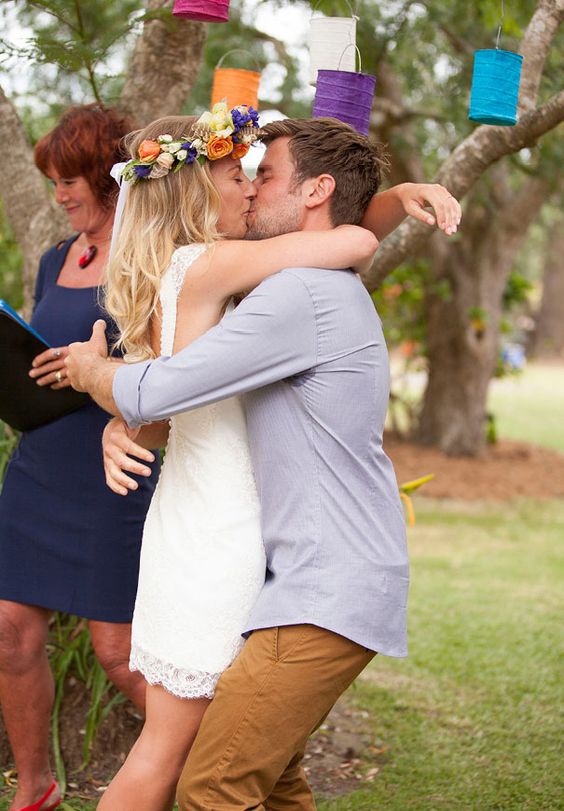What’s the point of rehearsing your marriage ceremony the night before the wedding? You’ve seen a handful of weddings over the years and it looks like a piece of cake! There is so much more to a wedding ceremony than just taking a walk down the aisle. A rehearsal for the entire bridal party and anyone involved in the ceremony is a chance to set the stage for the next day and to bring your closest friends and relatives together in anticipation of the big day.
A rehearsal also allows you and your bridal party to get comfortable in the ceremony space. You’ll find out where you can all get ready the next day, which entrances to use, and where the bathrooms are — things that are often taken for granted. You’ll also learn any venue rules and get answers to pressing questions, like: Are music and mimosas allowed in the church bridal room? Yes, if you’re getting married in a church there are sure to be a few rules. There’s also a lot of symbolism in a religious ceremony, and the rehearsal is an opportunity for the officiant to walk you all through the various traditions and explain their meaning.
- Pre-Rehearsal Prep
Before your rehearsal and ceremony, there are obvious things to think about, such as who will walk the bride down the aisle. You also have to think about who is escorting the mothers, which bridesmaid will be paired with which groomsman and in what order the couples will proceed down the aisle. The order will vary depending on if you have junior bridesmaids and flower girls and whether you want the groomsmen to escort the bridesmaids down the full length of the aisle or meet them halfway.
Once you have the procession order all set, there are still plenty of other details to determine. Will you need microphones during the ceremony? Is your venue wheelchair-accessible? Depending on your venue, these are the kinds of details that a wedding coordinator or priest will help you consider ahead of time.
- What to Expect
Rehearsals are quick, not comprehensive, and are meant to act as an overview so that everyone knows what happens when. Once the rehearsal starts, you won’t be reading through every word of the ceremony. The bride and groom are usually asked to say a few lines, just to work out the pace and volume of their vows. If there are any readings, the reader will also rehearse a few lines.
If not all of your key players can be present at the rehearsal, it’s okay. In fact, it is standard practice for the musicians to be absent; if you’ve hired professional musicians or if the church provides a pianist or organist, they already know what to do. If members of the bridal party can’t make it to the rehearsal, don’t stress! Just designate another member of the party to fill them in on all the details the next morning.
- Three Secrets to Success
Be on time and organized. Most rehearsals are allotted just one hour and sometimes a venue has more than one rehearsal on a given night. Remember that everyone’s time is valuable and the rehearsal can’t start until everyone is present.
Practice patience and respect. Don’t get flustered or anxious if there are issues to work out — after all, that’s why you’re having a rehearsal in the first place.
Ask questions. As you’re going through the stages of the ceremony, ask questions if you don’t know what to do or if there’s something you don’t understand. Bottom line: Don’t be afraid to ask!
Would you like to see more ideas for wedding inspiration? Check out our latest issue of Premier Bride of Mississippi magazine here or on our blog, www.idoyall.com.
